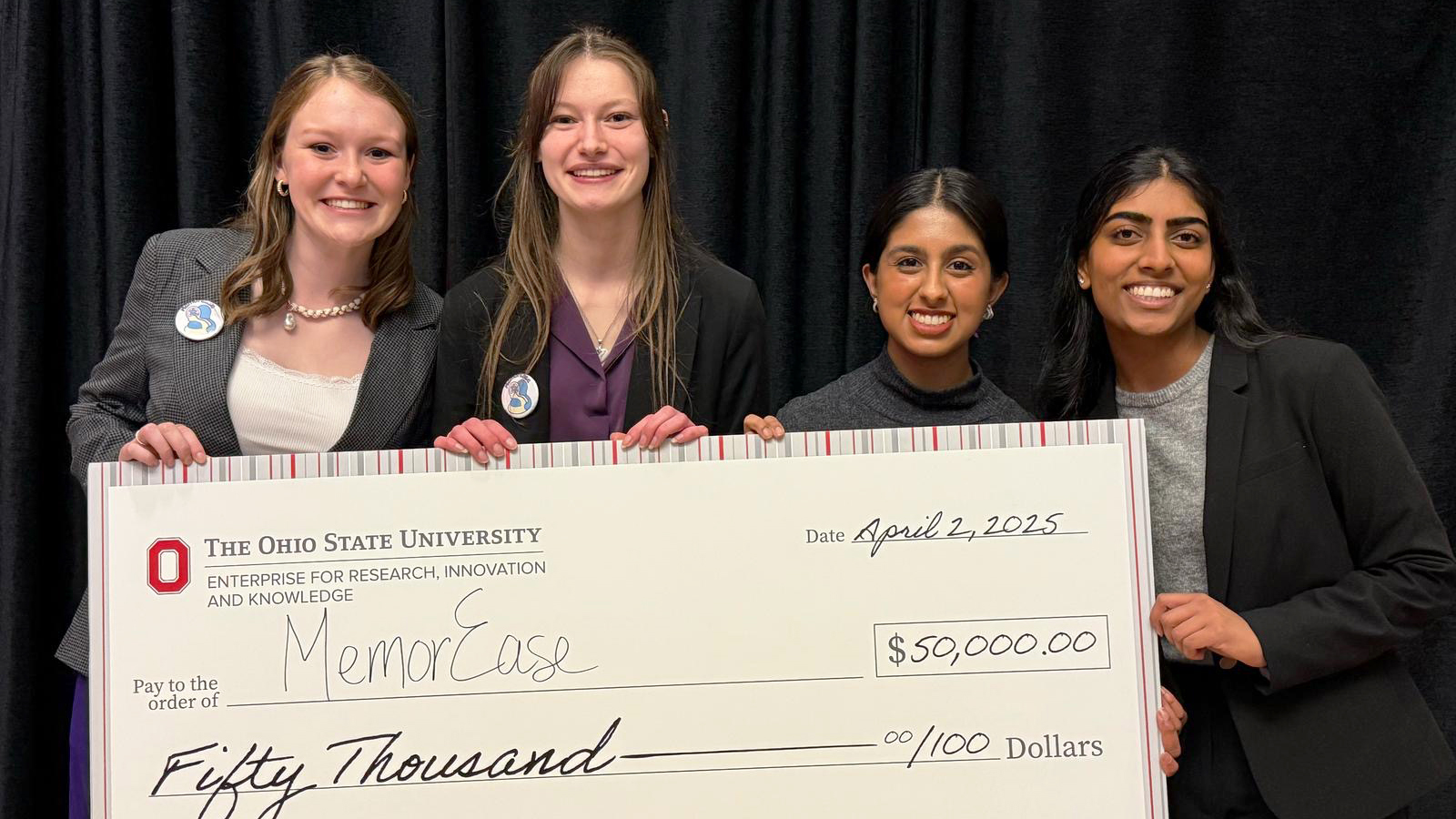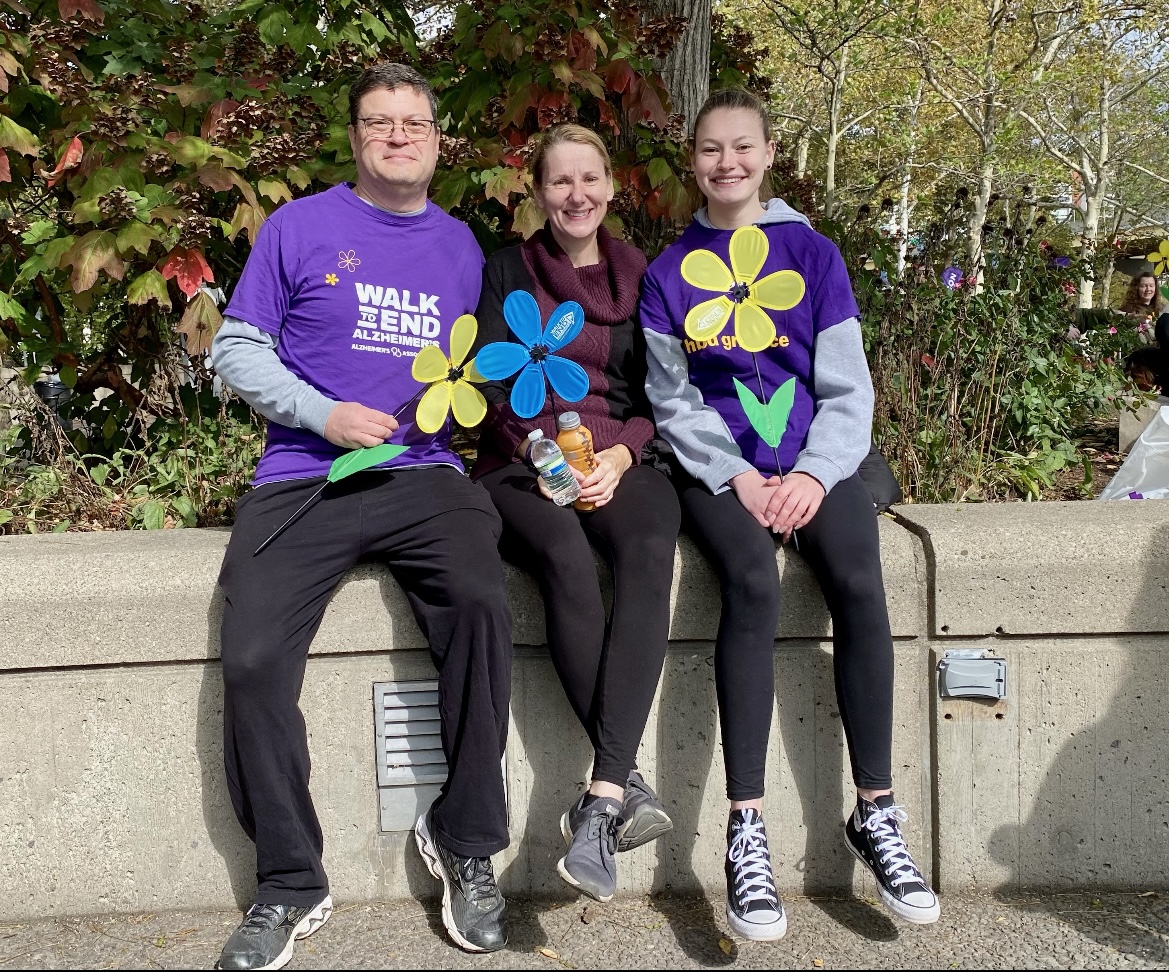Buckeyes in Action: Supporting dementia caregivers
Undergraduate Katherine Cruze inspired by family diagnosis
By Kristen Mitchell

Editor’s note:
Every day, dedicated faculty, students, staff and alumni of the College of Public Health are impacting the well-being of communities locally, nationally and around the world. Our Buckeyes are passionate leaders and advocates committed to ensuring all people have the opportunity to thrive. “Buckeyes in Action” showcases the multitude of ways our community is driving public health forward in tangible, immediate ways.
When Katherine Cruze’s mother was diagnosed with early-onset Alzheimer’s disease, her family was thrust into a challenge they never expected. As her dad took on the role of primary caregiver — navigating shifting family roles, frequent medical appointments and uncertainty about the future — Cruze realized there was no roadmap for this.
Her family’s experience planted a seed that changed the trajectory of her life and inspired her to co-found MemorEase, a startup focused on providing resources and support for dementia caregivers.
“Especially in the beginning…you don’t know what you don’t know. You don’t know what you’re looking for, you don’t know what you need,” said Cruze, a junior majoring in public health sociology. “That was the idea, to really lay out what people need because they don’t have the time to look for these resources and they don’t know where to go.”
MemorEase was among six student ventures awarded $50,000 at the President’s Buckeye Accelerator Finale in April. Cruze and her colleagues will spend the coming academic year developing their app, gathering feedback from caregivers and building connections with people involved in dementia care.
Identifying a need

Experts don’t fully understand what causes Alzheimer’s disease, the most common type of dementia marked by a decline in cognitive function and memory. An estimated 7.2 million Americans over age 65 are living with Alzheimer’s disease — about 1 in 9 people in that age group, according to the Alzheimer’s Association. The number is expected to double in the next few decades.
The MemorEase team asked about 50 caregivers what resources would be most helpful. They identified four main components to incorporate in their platform — jargon-free educational information sorted by the stage of dementia, suggestions for cognitive activities and exercises caregivers can do with their loved one, a support group locator and a virtual scrapbook to save photos and memories. They aim to launch an initial version of the app this fall.
“What excites me about MemorEase is the opportunity to alleviate the burden on caregivers in a way that hasn’t been able to be done before,” said Hannah Kemper, who is majoring in pharmaceutical sciences with a minor in aging. “It’s time that caregivers get a little bit of their time back.”
The team met as part of Ohio State’s Stamps Eminence Scholarship Program. They participated in the Keenan Center for Entrepreneurship’s seven-week Boost Camp to develop their pitch, ultimately securing a spot in the yearlong President’s Buckeye Accelerator where they will receive mentorship and collaborate with other student entrepreneurs.
It’s an exciting prospect for the team of health-focused students.
“None of us have any business knowledge or background,” said Rimel Kamran, a medical anthropology major who is minoring in epidemiology. “This was such a new and exciting process for us, I’m excited to see how it can grow and how we can bring this mission into reality.”
“Especially in the beginning…you don’t know what you don’t know. You don’t know what you’re looking for, you don’t know what you need.”
Public health’s ‘farther-reaching influence’
Cruze came to Ohio State determined to become a neurologist so she could help patients like her mom, but the idea of working in one-on-one patient care felt limiting.
“I wanted to have a much farther-reaching influence,” she said. “I want to be able to do something to really help the patients through the next step (after diagnosis).”
She liked that the public health classes she took were people-focused and dug into the challenges different populations face. Cruze hopes to chart a path that blends public health and public policy, either working in government or directly in public health to enact change.
In the three years since her mom’s diagnosis Cruze’s family has settled into a new normal. Her mom is doing well, and her dad has found his footing as a caregiver, Cruze said.
“He is very proud of the whole group and has been super helpful and supportive throughout this entire thing,” Cruze said. “He’s answered all of my questions. He’s dealt with the nonstop pestering from me and is excited to see (the app) and hopefully use it.”